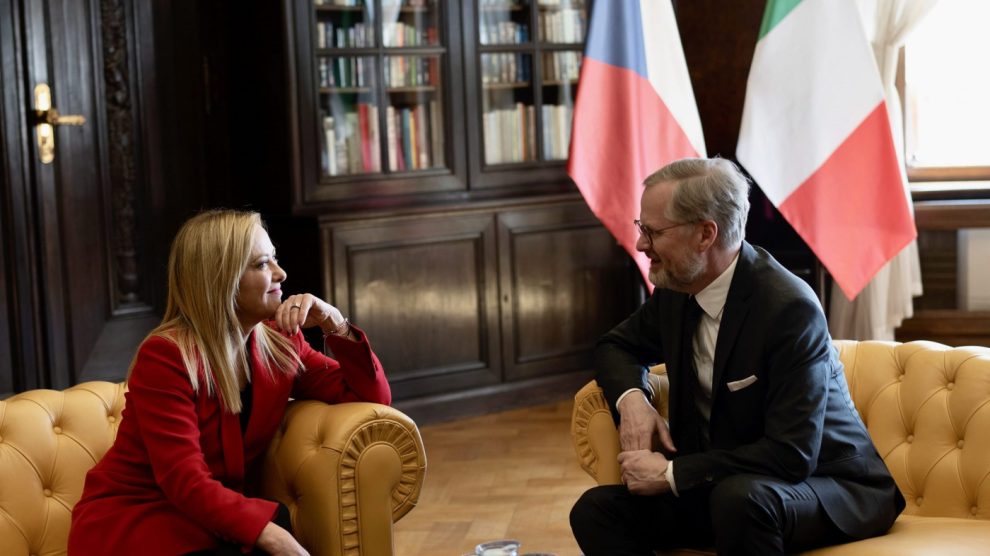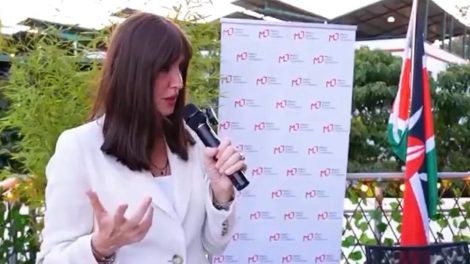Giorgia Meloni in Prague. On Wednesday, the Italian Prime Minister flew to the Czech Republic to meet with her counterpart Petr Fiala as well as President Petr Pavel. In a press conference, the two PMs expressed their government’s convergence on a number of key dossiers.
- Migration: “Italy is a country most affected in Europe by this phenomenon,” said PM Fiala, remarking that Prague “supports [Rome’s] proposals because we have an equal vision.” Both highlighted the need for a preventive, pan-European approach and a harder line on human traffickers.
- Ukraine. Both leaders reiterated their support to Kyiv’s resistance against Russia, confirming their willingness to provide “all-round support for Ukraine as long as it is necessary,” stressed PM Meloni, adding that they had also talked “about reconstruction, confirming that we bet on the future of peace and freedom and the European future of Ukraine.”
- EU fiscal rules. Prague and Rome also “agree that the new rules” – which are being discussed in Brussels – “cannot fail to take into account the great challenges that Europe has given itself,” said Mr Meloni, pointing at the green and digital transitions and the heavy investments they require.
The Conservative link. The meeting was also a clearly amicable contact between two key figures in the European Conservatives and Reformists group, which is headed by PM Meloni. PM Fiala, Polish PM Mateusz Morawiecki and herself represent the ECR’s growing number of heads of government.
- The ECR recently tied with the right-wing ID group to become the fifth-biggest in the European Parliament after two Finnish MEPs left the latter to join the former.
- The recent Finnish and Bulgarian elections highlight a surge of right-wing parties, which is likely to translate into more conservative MEPs coming out of the 2024 European elections – and consolidate the ECR’s position as the new conservative powerhouse in the European Parliament.
Jittery rivals? A new majority to elect the next European Commission President could entail a bolstered ECR joining forces with the European People’s Party (EPP) and the liberals (Renew), as suggested by former Italian PM Silvio Berlusconi. Members of the EPP have been weighing such an alliance, which would entail abandoning their current coalition with the parties on its left.
- That prospect, according to some, is why politicians from Europe’s centre-left – including French President Emmanuel Macron (Renew) and Spanish Deputy PM Yolanda Diax (Left) – have been levelling political jabs towards Ms Meloni.
- On her part, the Italian PM dismissed these critiques as an attempt by Paris and Madrid to use her as a strawman against internal political issues – possibly including the rise of local right-wing parties.
The take from Strasbourg. ECR’s Co-President, Nicola Procaccini, told our sister website that these attacks embody “the increasingly evident dread of Giorgia Meloni’s success. I see her as the head train driver of this centre-right European convoy, because […] Italy is the largest centre-right-led nation, with a woman, who is also proving in deeds to be particularly pragmatic and effective in her actions.”
- Thus, according to Mr Procaccini, the idea of adopting the Italian model of government “represents the number one bogeyman of the left […] I would say that a new, different, conservative Europe is emerging.





